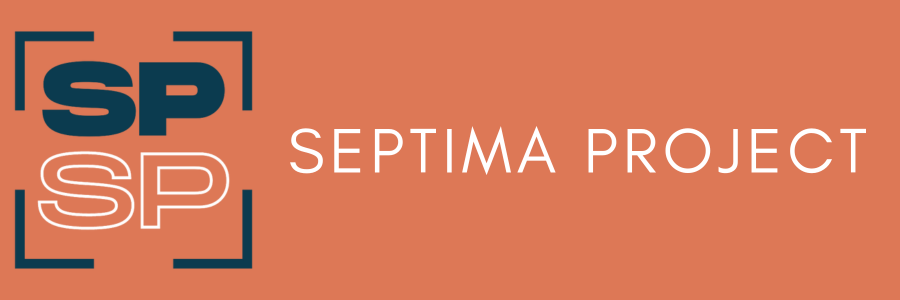I'm a White Person Doing Racial Equity Work and I Can't Find a Role Model
Dec 2023
I struggle to connect with the other well-meaning white people out there trying to do racial equity work. I just don’t trust any of us*. I ask myself: is it just that I’m a natural contrarian? Am I threatened or competitive? Am I basically a hypocritical hater preaching the importance of community when I can’t even engage in fellowship with my fellow whites? If you know me personally, these are fair questions, but after a lot of reflection (you can’t be in this business without being an overthinker), I’ve decided it’s not all on me.** A lot of us are coming at this wrong.
One of the difficulties in doing this work is that there is no real course of study or degree you can get that tells the world you are a qualified and safe white person to talk to about structural racism. Yes, there are certification programs to become a DEI trainer for the workplace. But I’m not talking about a piece of paper you can wave at a corporation so they tick a box off their late-stage capitalism CYA checklist (but that’s a topic for a whole other blog).
Right now, the racial equity space is filled with a lot of people trying to prove their bona fides. I get it: I’m doing it too. In my case I have pointed to my years of activism combined with many years as a researcher and information professional, specializing in trainings on difficult topics (doesn’t that sound like you should hire us? Like and subscribe!)
But increasingly, I’ve noticed that many racial equity practitioners are resorting to the language of therapy, self-help, and life coaching and rightly, or wrongly, it sets my teeth on edge.
Many of us doing this work agree that we need to help other white people feel comfortable talking about race. Yet the way so many of us approach the work betrays our own discomfort. Extreme earnestness, euphemistic language, and a focus on white people healing from trauma—all of these are things I encounter on the regular when looking around at what others are doing in this field.
Admittedly, as a Gen X-er, I’m allergic to sincerity, but all of this strikes me as disingenuous and distancing. It doesn’t feel real. In everyday life we don’t talk to each other like we’re your caftan-wearing high school ceramics teacher who just got back from an ashram. Part of this carefulness and affectation can be attributed to the fact that so many are trying to get hired by corporate clients—so yes, you have to make sure you don’t scare them away.
But the real work of racial equity is scary. Racism is messy and ugly and white equity consultants can’t pull punches here. It’s not a topic that should be sanitized with a veneer of therapizing or intellectualism—as though there is a language you can learn and your fluency will protect you from giving offense or causing harm. White people who set out on an antiracist journey are going to offend, we will cause harm unknowingly. The trick is to learn how to bounce back and course correct.
We must be willing to be vulnerable so that we can connect in meaningful ways and build real relationships. These relationships are the fundamental building blocks of community building and solidarity (you can read more about how to cultivate connection in our Building Relationships for Racial Solidarity Workbook). But we’re so terrified of saying the wrong thing and appearing racist that we sabotage any chance of true relationships by not being our authentic selves. Why are we scared of that? Aren’t we all ostensibly starting from the premise that every white person has the capacity to be racist?
I don’t want to hear this work framed in a therapeutic way because the work of antiracism is not a healing journey for white people***. I don’t want my white racial equity trainer namaste-ing at me. I don’t want to talk about helping organizations develop equity strategies guided only by empathy and intention, with no mention of power or systems change.
I want to talk about how the real plot twist is that racial inequity is not going to be “solved” by businesses hiring you to run a brown bag series. I want to know that you know that, and I want to know why you are called to this work. And I don’t want it to feel like an episode of Starting Over****. I want it to be an episode of The Real World, where we find out what happens when people stop being polite and start getting real.*****
Are you a white person called to this work that feels this way? Let’s talk about it…in the realest way possible.
*You really have to watch us all the time. You might invite us to the cookout and then, like your normally sweet Akita who suddenly bites the baby, we might ask your cousin with a pager if they are a drug dealer (sorry, I really love my Real World references.)
**Anti-racism is not a feel-good emotional journey for white people, but we should all give ourselves a little pep talk sometimes.
***White people do need space to process their feelings and experiences, but this must occur separately from the core work of multiracial organizing and coalition building. Therapy is good, don’t @ me!
**** You probably don’t remember this doozy of a reality show that featured the first pre-Oprah appearance of Iyanla Vanzant fixing people people’s lives. Iyanla is exempt from everything I’m saying.
****On the first season of the Real World, Kevin and Heather got Julie together and she seems to have turned out to be a legit nice white lady. Becky, on the other hand? Oof.


